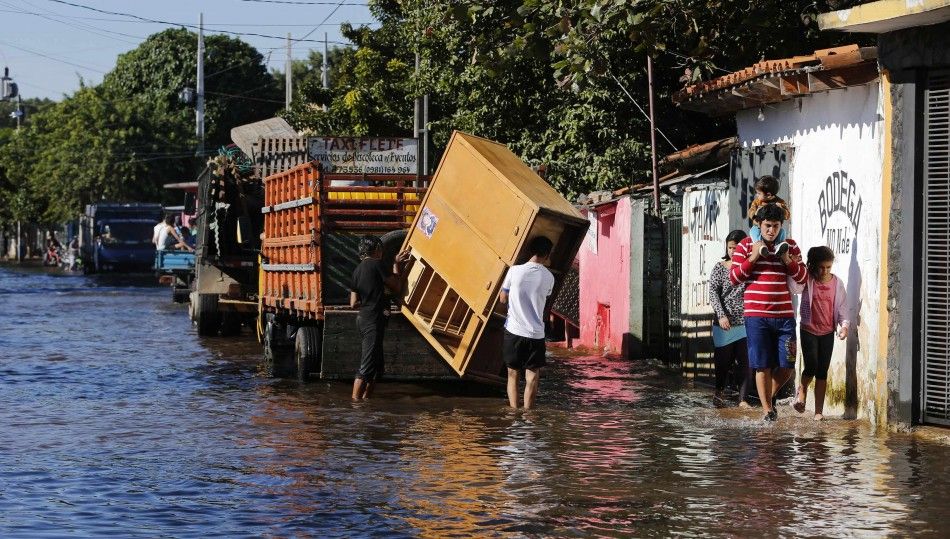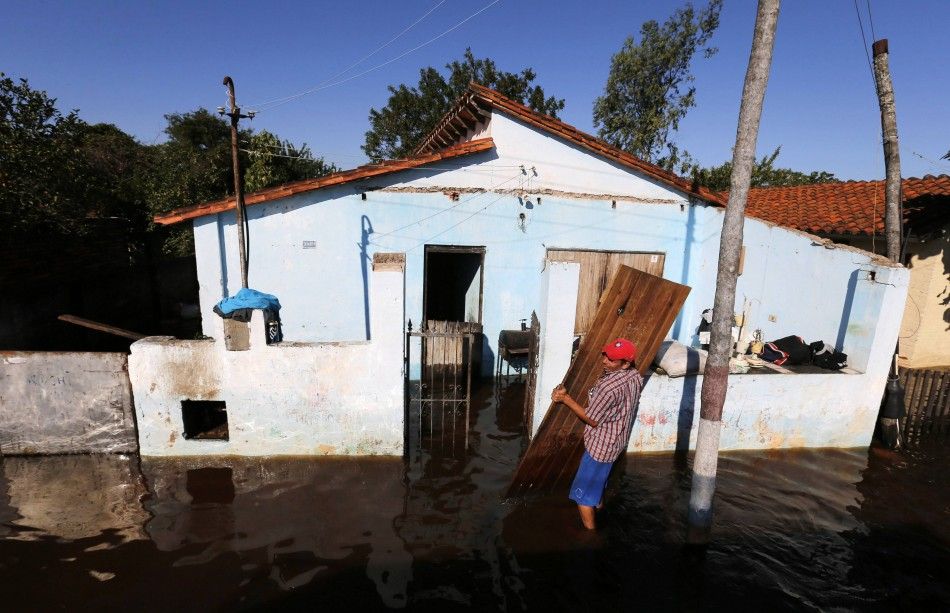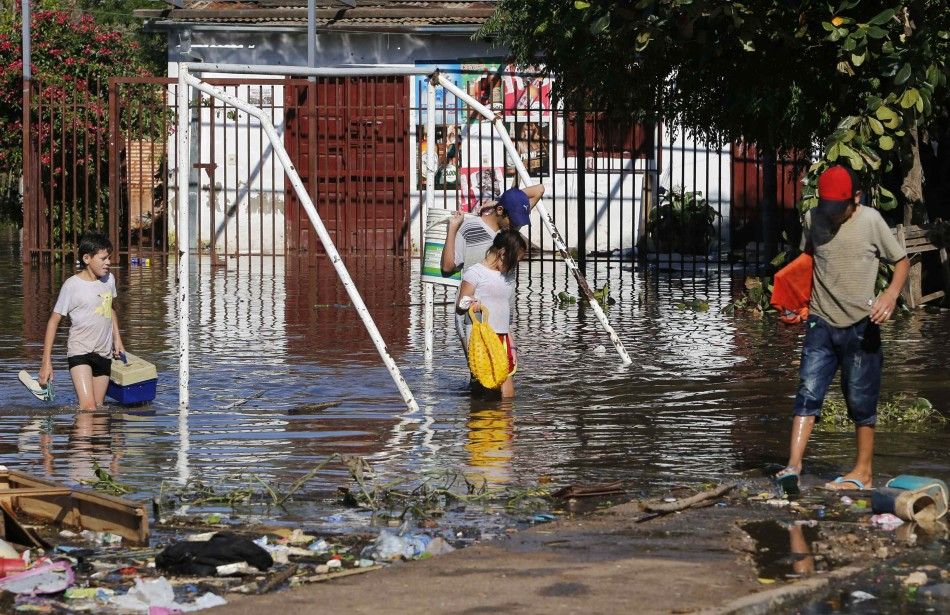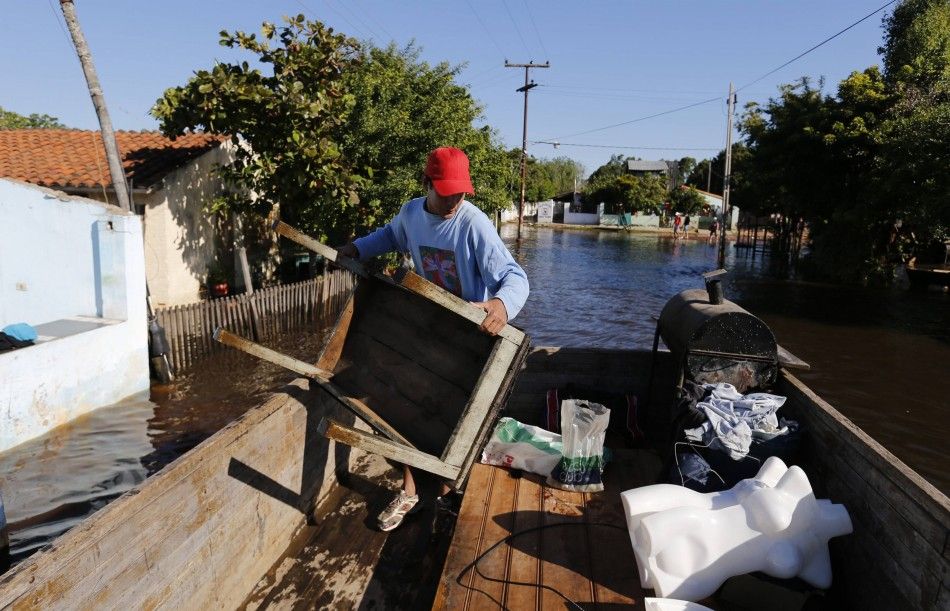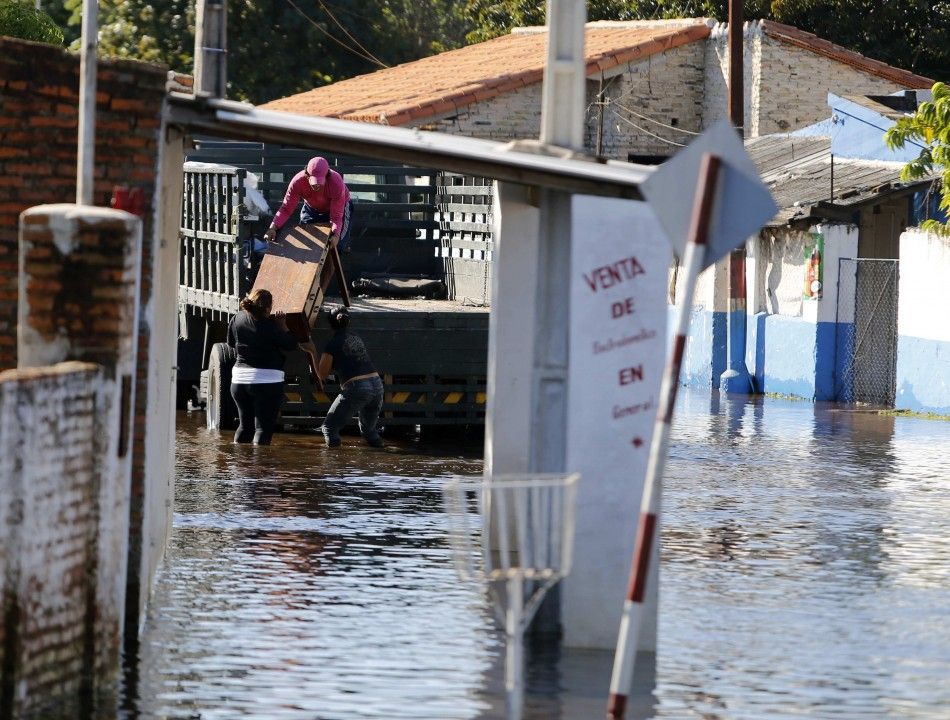Paraguay Floods Displace 200,000; Authorities Warn Spread of Diseases Like Dengue & Chikungunya
Authorities Warn of Diseases Dengue, Chikungunya Spreading
At least 200,000 are now displaced in Paraguay, forced to flee their homes after floods caused by incessant torrential rains inundated the Paraguay and Parana rivers.
Moreover, more than 8,000 people in the Neembucu state may face food supply shortage after the rains destroyed essential crops as well as blocked roads needed to deliver items to the affected contingents.
Authorities are likewise particularly concerned over the spread of diseases like dengue and chikungunya given the high levels of floodwaters.
"When I arrived in Asuncion I thought I would have to travel many hours to get to the areas that were flooded, however, having only visited the Paraguay River in Asuncion I realized that we were facing a bigger emergency than what we had expected," Felipe Del Cid, disaster management delegate for the International Federation of Red Cross and Red Crescent National Societies (IFCR), said.
Del Cid, deployed to the field to participate in evaluations and planning of the response to this situation, said it will take two months for the thousands of families to return home and regain back the normalcy of their lives.
"I think that the process of thousands of families returning home will require that the same or even greater resources are invested by the government authorities. The cleaning and disinfection of houses is an important need in which we all need to be involved," he said.
The government of Paraguay said it has spent more than $3 million on food aid assisting affected families.
Del Cid said the people and government of Paraguay ought to accept their situation as he noted that floods in the country and the rest of South America are already recurring.
"It's almost always the same zones that are affected, but the particularity of the management of these types of emergencies due to recurrent flooding is that the families, even if they wanted to, can do little to avoid them."
